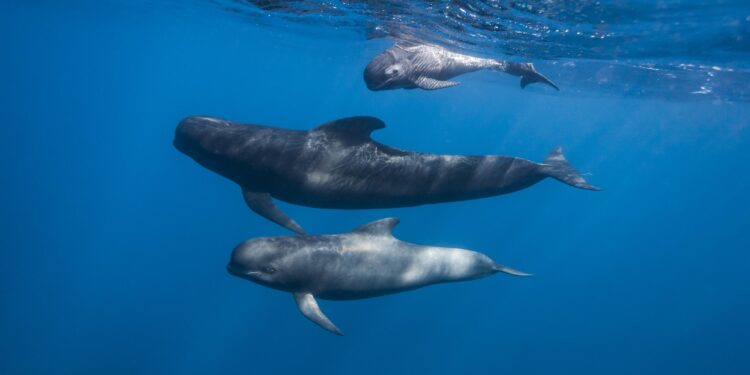Outrage has erupted worldwide following the brutal killing of 246 pilot whales in the Faroe Islands, in what animal rights group World Animal Protection has condemned as one of the bloodiest hunts in recent history. The annual grindadráp tradition, long defended by locals as cultural heritage, has once again sparked fierce criticism over the scale and violence of the slaughter. Activists and environmentalists demand urgent action to end the hunt, highlighting concerns over animal welfare and conservation.
Outcry Mounts Over Mass Killing of Pilot Whales in Faroe Islands
The recent hunt in the Faroe Islands led to the heartbreaking slaughter of 246 pilot whales, sparking an international wave of condemnation. Animal welfare organizations and activists have decried the practice, labeling it as brutal and outdated, urging authorities to impose an immediate ban. The sheer scale of the killing has intensified calls for global intervention and stronger protections for marine mammals.
Critics highlight several issues surrounding the event, including:
- Cruelty in hunting methods – The bloody nature of the hunt leaves many whales struggling before death.
- Ecological implications – The mass killing disrupts local marine ecosystems and threatens species sustainability.
- Weak regulation – Current laws permit such hunts despite growing public and international pressure to stop them.
| Year | Number of Whales Killed | Location |
|---|---|---|
| 2023 | 235 | Faroe Islands |
| 2024 | 246 | Faroe Islands |
| 2022 | 220 | Faroe Islands |
Experts Reveal Environmental and Ethical Impacts of Drive Hunt
Conservation experts have voiced serious concerns over the recent drive hunt that resulted in the death of 246 pilot whales in the Faroe Islands. They warn that such mass culls pose a significant threat to marine biodiversity, risking the depletion of already vulnerable whale populations. The practice disrupts local ecosystems, as pilot whales play a crucial role in maintaining the balance of the marine environment. Moreover, the method of hunting, involving the active herding and herding of entire pods, is regarded by marine biologists as both traumatic and unsustainable. Environmentalists emphasize the need for urgent protective measures to safeguard these intelligent marine mammals from further decimation.
From an ethical standpoint, animal welfare organizations strongly condemn the hunt’s brutal nature. Critics highlight the prolonged suffering inflicted on the whales during the massacre, labeling it as inhumane and outdated. The practice’s legality remains contentious, with growing international calls for the Faroe Islands to reconsider and ultimately abandon these hunts in favor of more humane cultural traditions that do not endanger animal life. Below is a summary of the key environmental and ethical issues identified by experts:
- Population Impact: Risk of significant decline in local whale numbers due to high mortality rates.
- Ecological Disruption: Alteration of food webs and habitat balance in the North Atlantic Ocean.
- Inhumane Techniques: Stress and prolonged suffering caused by the hunting method.
- Cultural Controversy: Clash between traditional practices and modern conservation ethics.
| Aspect | Impact | Expert Recommendation |
|---|---|---|
| Population Sustainability | Declining pod sizes | Adopt population monitoring |
| Animal Welfare | High stress and trauma | Phase out hunting methods |
| Ecosystem Health | Imbalance in food chain | Implement conservation zones |
| Cultural Practices | Controversial global scrutiny | Encourage sustainable traditions |
World Animal Protection Calls for International Ban and Stronger Wildlife Safeguards
In the wake of the devastating slaughter of 246 pilot whales in the Faroe Islands, World Animal Protection has intensified its plea for an international ban on such brutal hunts. The organization calls for urgent implementation of comprehensive wildlife protection laws that transcend national borders, emphasizing that outdated cultural traditions cannot justify mass killings of sentient marine mammals. They argue that safeguarding biodiversity must take precedence over local customs, highlighting the global responsibility to protect vulnerable species from needless suffering.
World Animal Protection outlined key measures essential to ending practices like the recent hunt:
- Enforcing international bans on drive hunts and other mass captures.
- Enhancing marine protected areas to provide safe habitats away from human exploitation.
- Promoting community-led conservation programs that respect culture while protecting wildlife.
- Increasing penalties for illegal wildlife killings to deter future incidents.
| Year | Pilot Whales Killed | Hunt Duration (hours) |
|---|---|---|
| 2021 | 189 | 6 |
| 2022 | 220 | 8 |
| 2023 | 246 | 7 |
The Conclusion
The recent slaughter of 246 pilot whales in the Faroe Islands has sparked international outrage, drawing sharp criticism from animal welfare organizations worldwide. As calls for stricter regulations and alternative practices grow louder, the controversial tradition remains a focal point in the ongoing debate over animal rights and cultural heritage. The global community continues to watch closely, urging for change to prevent further bloodshed.
















